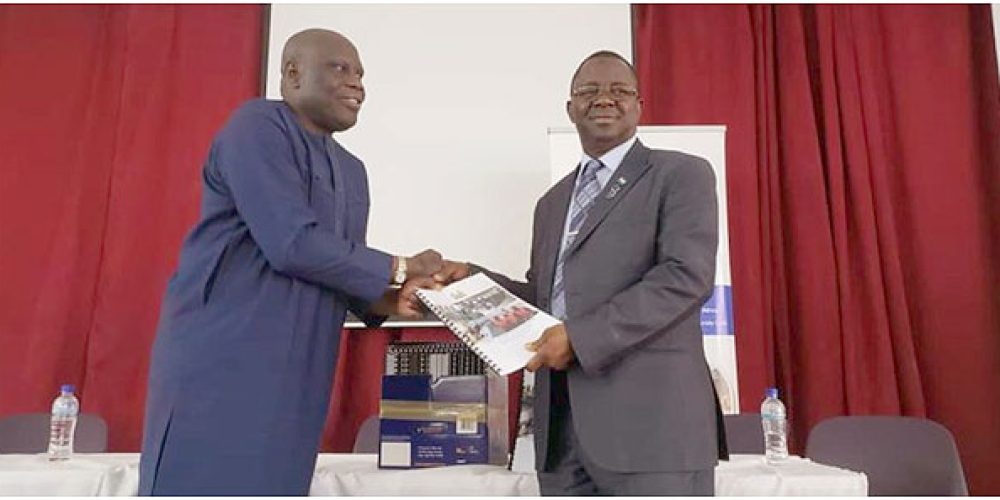Sierra Leone marked this year’s World Wetlands Day celebration with the launch of its Climate Change Adaptation Plan (CCAP), a document that WA BiCC played a key role in developing.
The CCAP sets the framework for an adaptation plan that is geared towards increasing the resilience of coastal communities across Sierra Leone. The document’s launch, which took place on Feb. 6 in Freetown, brought together staff of key government ministries, departments and agencies; USAID Sierra Leone; the United Nations Development Programme; civil society and non-governmental organizations; and pupils of school nature clubs.
As a party to the Ramsar Convention, Sierra Leone tied the CCAP launch to World Wetlands Day, observed on Feb. 2 every year, to remind all about the inextricable relationship between humans and wetlands. Aside from being natural habitats for marine species, wetlands also provide clean water, carbon storage, promote tourism, support human health and boost countries’ economies. This year’s theme was “Wetlands and Biodiversity”.
In his keynote address, the Minister of the Environment of Sierra Leone, Professor Foday Moriba Jaward, highlighted the rampant disregard for wetlands in the country, including the cutting down of mangroves, which store carbon and are a breeding ground for fish; the construction of buildings in wetland areas; unsustainable mining; the dumping of waste, and the use of hazardous chemicals such as mercury. These illegal activities, he said, had led to a rapid decrease in marine life, significant water shortages, flooding and climate change.
The Minister thanked USAID for its financial support through WA BiCC and for developing the CCAP document that would guide the government in implementing its climate change adaptation and mitigation activities across the coast.
WA BiCC’s Senior Policy Specialist, Adewale Adeleke, handing over the printed copies of the CCAP.
The CCAP document was developed out of a Climate Change Vulnerability Assessment and Options Analysis conducted by WA BiCC during the implementation of its climate change resilience project in coastal Sierra Leone. The document offers a mechanism for implementing, tracking, evaluating, and communicating adaptation actions and results, which are critical to the climate change adaptation plan’s overall success. The document also represents an opportunity for learning across boundaries, and provides a framework to deliver several policy outcomes, including climate change adaptation planning and increased capacity for effective resilience and collaboration in coastal areas.
The event included a presentation of WA BiCC’s work in coastal Sierra Leone by Mangrove specialist Arthur Chinsman-Williams.





